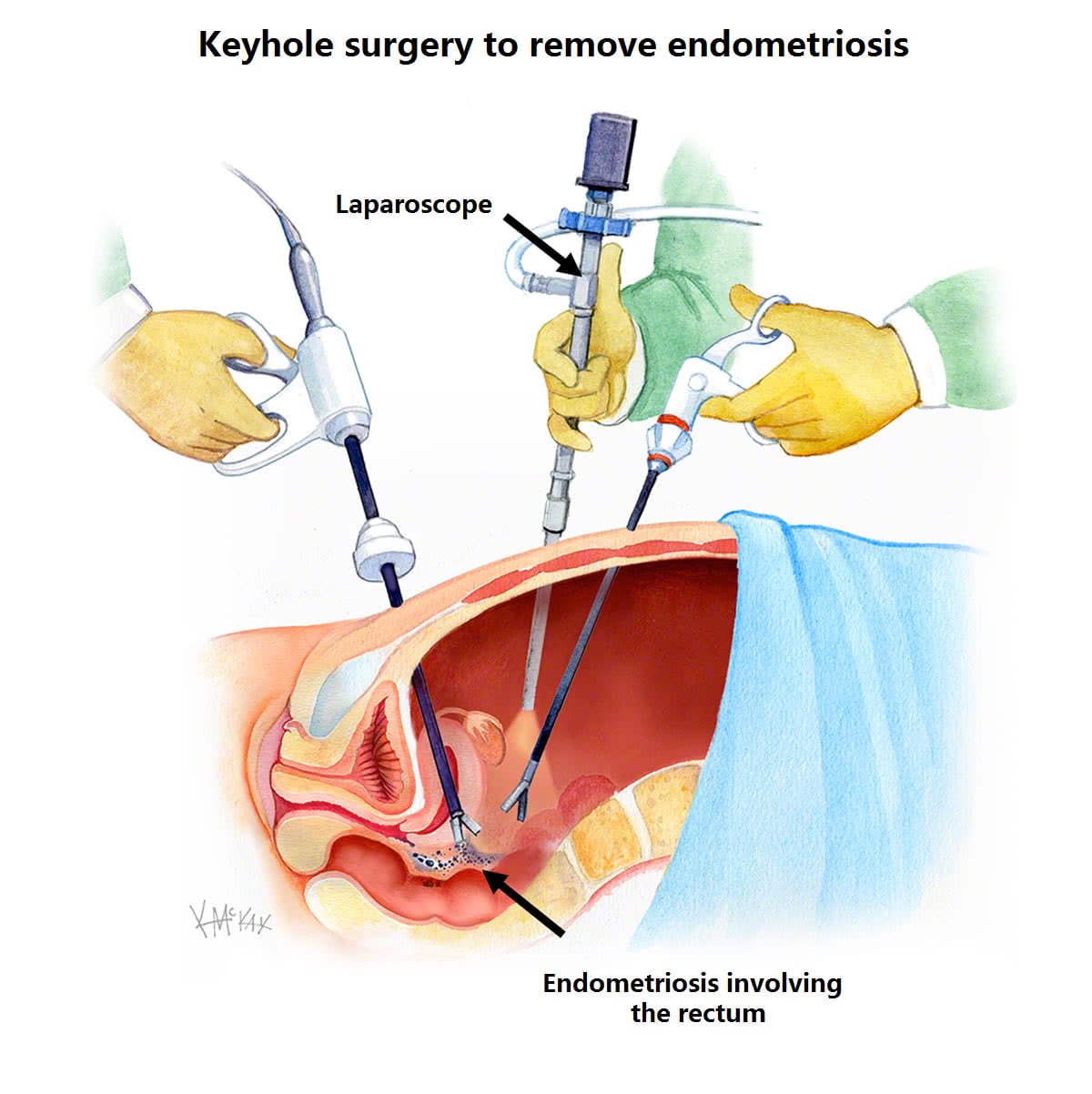Five to fifteen percent of women with endometriosis have colonic or rectal involvement [1]. Usually only the outside wall of the colon or rectum is involved. Occasionally the endometrial deposits are much deeper within the recto-vaginal septum (Figure 1).

These endometrial deposits result in inflammation and adhesions, and this may result in some obstructive symptoms (crampy pain, bloating), and infertility due to chronic inflammation. Deep involvement of the colon or rectum can result in cyclical per rectal bleeding with the menstrual cycle (dyskesia). This only occurs in about 1.2% of those with endometriosis involving the rectum, and formal bowel resection is then required to prevent recurrence of the disease [2][3]. Cancerous change in colonic endometriosis has been documented [4]. The rate of progression is unknown but is uncommon. However, the main indication for surgery is infertility.
Surgery for endometriosis of the colon and rectum
Surgery can in most cases be performed key-hole (laparoscopic), with a 5-10cm incision made around the belly button (umbillicus) to remove the specimen. Occasionally a temporary stoma (ileostomy) is required.

What to expect pre and post operatively for endometrial bowel surgery
You will need to have only clear fluids the day before your surgery. Clear liquids are those that one can see through. When a clear liquid is in a container such as a bowl or glass, the container is visible through the substance. You will also require bowel prep to clean your colon. Take a picosulfate bowel preparation (Picoprep®) orally at 2pm and 6pm the day before your procedure. You need to fast from midnight the night before if your surgery is scheduled for the morning, or from 6am if scheduled for the afternoon. Immediately after your procedure you will be commenced on free fluids (semi thickened fluids such as custard, yoghurt, thin porridge). If your procedure is performed key-hole (laparoscopically), you will be up and mobilising from day one. You will be commenced on a light diet once you have passed flatus. You will be discharged from hospital once you have opened your bowels. A typical admission is anywhere from 3 days to 7 days.
Post operatively, you will need to see your gynaecologist and colorectal surgeon at 3-6 weeks post-operatively to check on you progress.
References
- Jubanyik KJ and Comite F (1997) Extra‐pelvic endometriosis. Obstet Gynaecol Clin North Am 24,411–440.
- Redwine DB (1991) Conservative laparoscopic excision of endometriosis by sharp dissection: life table analysis of re‐operation and persistent or recurrent disease. Fertil Steril 56,628–634.
- Redwine DB and Sharp DR (1991) Laparoscopic segmental resection of sigmoid colon. J Laparoendosc 1,217–220.
- Jones KD, Owen E, Berresford A and Sutton C (2002) Endometrial adenocarcinoma arising from endometriosis of rectosigmoid colon. Gynecol Oncol 86,220–222.
